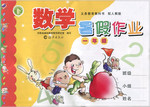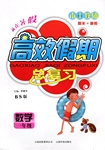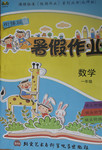题目内容
Born into a family with three brothers, David was to value the sense of
sharing.
A. brought up B. built up C. picked out D. put forward
A
【解析】考查短语辨析。bring up提出;养育,抚养 build up加强,增进 pick out挑选;辨认出 put forward 提出 根据句意,David被教育珍惜分享的感觉。

 暑假作业海燕出版社系列答案
暑假作业海燕出版社系列答案 本土教辅赢在暑假高效假期总复习云南科技出版社系列答案
本土教辅赢在暑假高效假期总复习云南科技出版社系列答案 暑假作业北京艺术与科学电子出版社系列答案
暑假作业北京艺术与科学电子出版社系列答案I am a writer. I spend a great deal of my time thinking about the power of language — the way it can evoke(唤起) an emotion, a visual image, a complex idea, or a simple truth. Language is the tool of my trade. And I use them all—all the Englishes I grew up with.
Born into a Chinese family that had recently arrived in California, I’ve been giving more thought to the kind of English my mother speaks. Like others, I have described it to people as “broken” English. But feel embarrassed to say that. It has always bothered me that I can think of no way to describe it other than “broken”, as if it were damaged and needed to be fixed, as if it lacked a certain wholeness. I’ve heard other terms used, “limited English,” for example. But they seem just as bad, as if everything is limited, including people’s perceptions(认识)of the limited English speaker.
I know this for a fact, because when I was growing up, my mother’s “limited” English limited my perception of her. I was ashamed of her English. I believed that her English reflected the quality of what she had to say. That is, because she expressed them imperfectly her thoughts were imperfect. And I had plenty of evidence to support me: the fact that people in department stores, at banks, and at restaurants did not take her seriously, did not give her good service, pretended not to understand her, or even acted as if they did not hear her.
I started writing fiction in 1985. And for reasons I won’t get into today, I began to write stories using all the Englishes I grew up with: the English she used with me, which for lack of a better term might be described as “broken”, and what I imagine to be her translation of her Chinese, her internal(内在的)language, and for that I sought to preserve the essence, but neither an English nor a Chinese structure: I wanted to catch what language ability tests can never show; her intention, her feelings, the rhythms of her speech and the nature of her thoughts.
【小题1】By saying “Language is the tool of my trade”, the author means that ______.
| A.she uses English in foreign trade | B.she is fascinated by languages |
| C.she works as a translator | D.she is a writer by profession |
| A.impolite | B.amusing | C.imperfect | D.practical |
| A.Americans do not understand broken English. |
| B.The author’s mother was not respected sometimes. |
| C.The author’ mother had positive influence on her. |
| D.Broken English always reflects imperfect thoughts. |
| A.well structured | B.in the old style | C.easy to translate | D.rich in meaning |
| A.The changes of the author’s attitude to her mother’s English. |
| B.The limitation of the author’s perception of her mother. |
| C.The author’s misunderstanding of “limited” English. |
| D.The author’s experiences of using broken English. |
People use their mouths for many things. They eat, talk, shout and sing. They smile and they kiss. In the English language, there are many expressions using the word “mouth.”
For example, if you say bad things about a person, the person might protest and say “Do not bad mouth me.” Sometimes, people say something to a friend or family member that they later regret because it hurts that person’s feelings. Or they tell the person something they were not supposed to tell. The speaker might say: “I really put my foot in my mouth this time.” If this should happen, the speaker might feel down in the mouth. In other words, he might feel sad for saying the wrong thing.
Another situation is when someone falsely claims another person said something. The other person might protest: “I did not say that. Do not put words in my mouth.”
Some people have lots of money because they were born into a very rich family. There is an expression for this, too. You might say such a person, “was born with a silver spoon in his mouth.” This rich person is the opposite of a person who lives from hand to mouth. This person is very poor and only has enough money for the most important things in life, like food.
Parents might sometimes withhold sweet food from a child as a form of punishment for saying bad things. For example, if a child says things she should not say to her parents, she might be described as a mouthy child. The parents might even tell the child to stop mouthing off.
But enough of all this talk. I have been running my mouth long enough.
【小题1】People use their mouths for many things. Which is NOT RIGHT?
| A.eat | B.talk | C.sing | D.hear |
| A.When he feels down . | B.When he feels regretful. |
| C.When he is spoken ill of. | D.When he feels innocent. |
| A.Do not bad mouth me | B.I really put my foot in my mouth this time |
| C.Do not put words in my mouth | D.Stop mouthing off |
| A.he is badly – off(家境贫寒) | B.he is hard – working |
| C.he is well – off(家境好) | D.he has enough to eat |
| A.I have run a long way | B.I have been a mouthy person |
| C.I have learned a lot | D.I have talked too much |